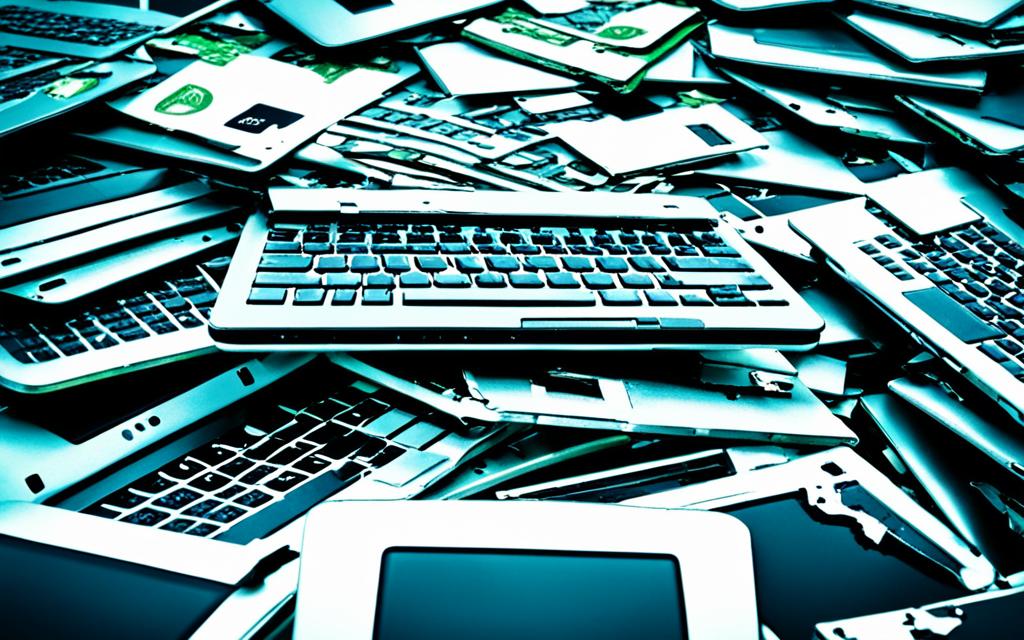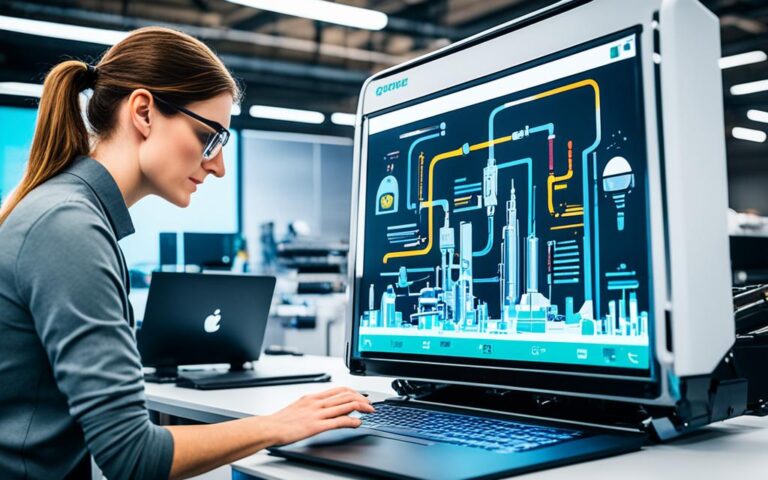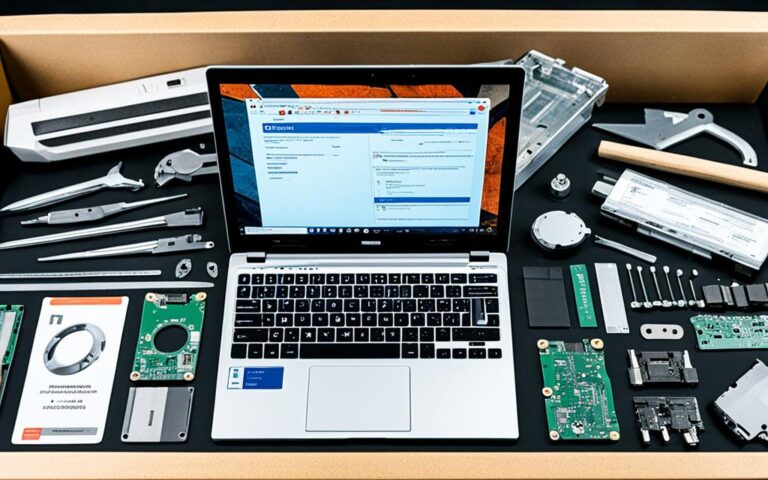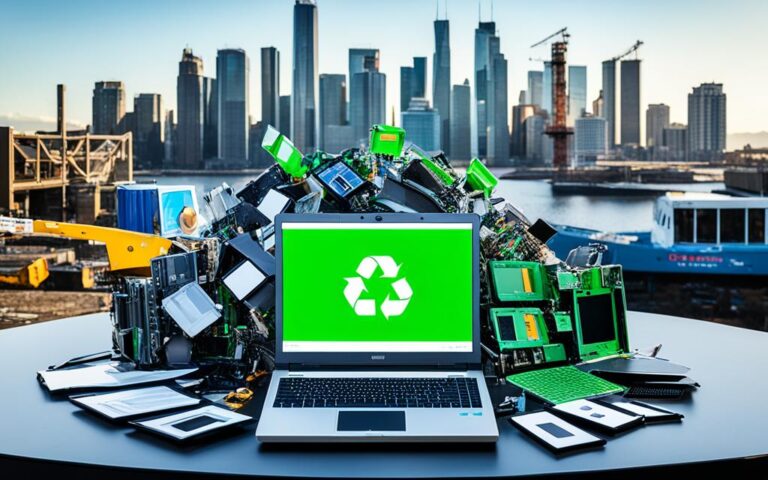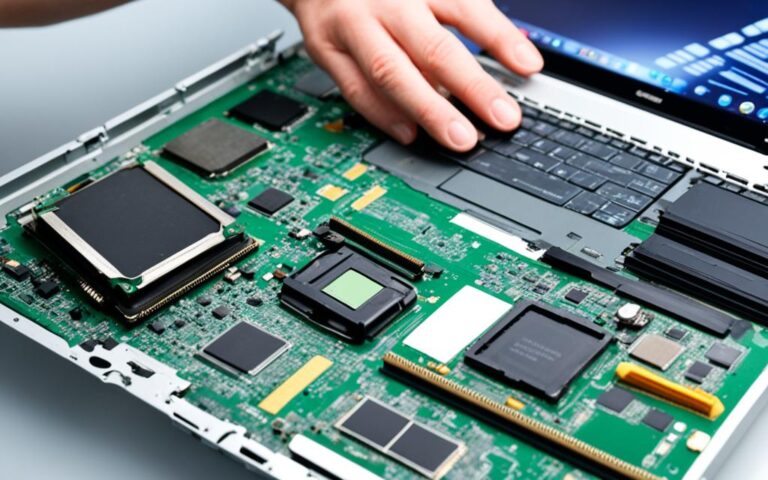The Economic Benefits of Laptop Recycling for Individuals and Communities
Laptop recycling offers numerous economic advantages for individuals and communities in the United Kingdom. By repurposing and reusing hardware components, individuals can achieve significant cost savings. Extending the lifespan of hardware not only reduces the need for new purchases but also allows for better budget allocation. Additionally, harvesting valuable components from obsolete systems can provide unexpected cost savings.
Responsible disposal of electronic waste not only avoids fees but can also lead to tax incentives. Vendor partnerships in recycling can help reduce costs through volume discounts and trade-in programs. Job creation is another economic benefit, with employment opportunities available in recycling facilities and entrepreneurial ventures in e-waste management.
Laptop recycling offers a win-win solution, benefiting both the economy and the environment. By embracing laptop recycling practices, individuals and businesses can contribute to sustainable development and responsible resource management. Material recovery from e-waste not only provides economic benefits but also contributes to a circular economy. Additionally, upcycling electronic components presents opportunities for creating new economic ventures.
Overall, laptop recycling brings individual laptop recycling benefits and economic advantages of computer recycling such as cost savings through repurposing, reduced waste management costs, vendor partnerships in recycling, and job creation through computer recycling.
Cost Savings Through Repurposing and Reuse: Maximizing ROI on IT Assets
One of the key economic advantages of laptop recycling is the opportunity for significant cost savings through repurposing and reusing hardware components. By refurbishing older computers and extending their lifespan, individuals can delay the need for new purchases and allocate their budgets more effectively.
Additionally, harvesting valuable components from obsolete systems can provide unexpected cost savings. Instead of disposing of the entire laptop, certain parts such as processors, memory modules, and hard drives can be salvaged and used in other devices or sold on the secondary market. This component harvesting not only reduces waste but also offers potential revenue streams.
Responsible disposal of electronic waste also helps to reduce waste management costs. When laptops are properly recycled, they do not end up in landfills where they can contribute to environmental pollution. Instead, recycling facilities recover valuable materials, such as precious metals, plastics, and glass, which can be reused or sold to manufacturers for the production of new devices.
“The goal is to minimize the amount of e-waste that goes to landfill, as this not only helps the environment but also reduces waste management costs for communities.”
In some cases, responsible e-waste disposal can also result in tax incentives for individuals and organizations. Governments may provide tax credits or deductions as a way to promote and reward proper e-waste handling.
To achieve even greater cost savings, establishing long-term vendor partnerships in recycling can be advantageous. Through such partnerships, individuals and businesses can benefit from volume discounts on recycling services and gain access to trade-in programs that provide additional financial incentives for recycling old laptops.
Maximizing ROI on IT assets through cost savings and resource optimization is not only economically beneficial but also environmentally responsible. By diverting laptops from landfills and minimizing the need for new purchases, laptop recycling contributes to a more sustainable and circular economy.
| Cost Savings Through Repurposing and Reuse | Benefits |
|---|---|
| Extended hardware lifespan | Delaying the need for new purchases |
| Component harvesting | Unexpected cost savings and potential revenue streams |
| Reduced waste management costs | Responsible disposal and recovery of valuable materials |
| Vendor partnerships in recycling | Volume discounts and trade-in programs |
Job Creation and Economic Stimulation through Computer Recycling: A Multiplier Effect on Local Economies
Laptop recycling not only offers cost savings but also plays a crucial role in job creation and economic stimulation. Recycling facilities require a skilled workforce, providing employment opportunities in various sectors such as collection, processing, refurbishment, and sales. The demand for qualified professionals in these areas continues to grow, creating a positive impact on the job market and contributing to local economies.
In addition to employment opportunities within recycling facilities, entrepreneurial ventures in e-waste management have emerged as a significant source of job creation. These ventures facilitate the collection, refurbishment, and resale of electronic devices. By diverting e-waste from landfills and giving it a new lease on life, these ventures contribute to sustainable development while generating employment opportunities.
Community programs and non-profit initiatives form another important aspect of job creation and economic stimulation through computer recycling. These programs often prioritize employing local residents, injecting money directly into local economies and supporting the growth of surrounding communities. As individuals and organizations actively participate in laptop recycling efforts, they contribute to the development of a vibrant and sustainable local economy.
The government can play a vital role in promoting job creation and economic activity by offering incentives and fostering public-private partnerships in the recycling sector. Government initiatives can include financial incentives, tax benefits, and grants to encourage recycling businesses and create an environment conducive to job growth. By collaborating with private entities, governments can pool resources and expertise to establish effective recycling policies and infrastructure.
The Economic Impact of Job Creation through Computer Recycling
“Recycling electronics not only helps to protect the environment but also supports the economy by creating jobs and boosting local businesses.”
Job creation through computer recycling has far-reaching economic benefits. It not only provides individuals with employment opportunities but also encourages economic development within local communities. As recycling facilities expand and entrepreneurial ventures thrive, the multiplier effect on the economy becomes evident.
| Key Benefits of Job Creation through Computer Recycling |
|---|
| 1. Employment opportunities in various sectors of the recycling industry. |
| 2. Growth of entrepreneurial ventures in e-waste management. |
| 3. Injection of money into local economies through community programs and non-profit initiatives. |
| 4. Collaboration between government and private enterprises for job creation and economic growth. |
Revenue Generation through the Sale of Refurbished Electronics: A Sustainable Business Model
Another economic advantage of laptop recycling is the opportunity for revenue generation through the sale of refurbished electronics. With the growing market for refurbished electronics, driven by cost-conscious consumers and organizations seeking cost-effective IT solutions, there is ample opportunity to capitalize on this demand.
“The market for refurbished electronics is projected to reach a value of £44.14 billion by 2027, with a compound annual growth rate of 9.8%.” – Market Research Future
To succeed in this market, it is crucial to prioritize quality assurance and certification. Working with certified recycling companies ensures that the refurbished electronics meet industry standards. This not only builds consumer trust but also sets your business apart from competitors.
Online platforms and marketplaces are invaluable resources for expanding reach and increasing revenue. These platforms provide a convenient way to showcase and sell your refurbished electronics to a global audience. Additionally, they often offer additional services such as logistics and customer support, streamlining the selling process.
When determining pricing strategies for refurbished electronics, it is important to consider factors such as product age, refurbishment costs, and market demand. Competitive pricing is crucial for attracting customers and maximizing revenue. A thorough understanding of the market and competitor analysis can help inform pricing decisions and ensure profitability.
Quality Assurance and Certification
Quality assurance and certification play a critical role in the success of your refurbished electronics business. To gain the trust of customers, it is important to demonstrate that your products meet industry standards.
One way to ensure quality assurance is to work with certified recycling companies. These companies have established processes and guidelines to ensure that the refurbished electronics undergo rigorous testing and inspection. By partnering with them, you can be confident in the quality of the products you sell.
Additionally, obtaining certifications such as the Refurbished Electronics Certification can further enhance credibility. These certifications serve as a mark of quality and reassure customers that they are purchasing reliable and functional products.
Expanding Reach through Online Platforms and Marketplaces
Online platforms and marketplaces provide a vast and accessible marketplace for selling refurbished electronics. These platforms offer a wide range of benefits, including:
- Global reach: Reach customers from around the world, expanding your customer base and revenue potential.
- Convenience: List and sell your products online, eliminating the need for physical storefronts and reducing operational costs.
- Additional services: Many online platforms provide logistical support and customer service, making the selling process smoother and more efficient.
Popular online platforms and marketplaces for selling refurbished electronics include eBay, Amazon, and specialized websites such as Gazelle and Back Market. By leveraging these platforms, you can reach a larger audience and increase revenue.
Effective Pricing Strategies
When determining pricing strategies for refurbished electronics, it is essential to strike a balance between profitability and competitiveness. Consider the following factors when setting prices:
- Product age: Older models may have a lower market value, requiring lower prices to attract buyers.
- Refurbishment costs: Factor in the expenses incurred during the refurbishment process, such as component replacement and repairs.
- Market demand: Analyze market trends and customer preferences to determine pricing that aligns with market demand.
Competitive pricing is key to attracting customers and generating revenue. Conduct market research to understand your competitors’ pricing strategies and identify opportunities for differentiation.
A successful pricing strategy takes into account these factors while ensuring profitability and competitiveness in the market. By finding the right balance, you can maximize revenue and drive the success of your refurbished electronics business.
Conclusion
Laptop recycling offers a range of economic advantages for individuals and communities. By embracing laptop recycling practices, individuals and businesses can contribute to sustainable development and responsible resource management, while also reaping the economic benefits.
One of the key economic advantages of laptop recycling is the cost savings achieved through repurposing and reusing hardware components. By refurbishing older computers and extending their lifespan, individuals can delay the need for new purchases and allocate their budgets more effectively. Additionally, responsible disposal of electronic waste helps to reduce waste management costs and can lead to tax incentives in some cases.
Laptop recycling also has a significant impact on job creation and economic stimulation. Recycling facilities require a skilled workforce, providing employment opportunities in various sectors such as collection, processing, refurbishment, and sales. Entrepreneurial ventures in e-waste management can further contribute to job creation and economic growth, boosting local economies.
Furthermore, laptop recycling offers the opportunity for revenue generation through the sale of refurbished electronics. The growing market for refurbished electronics presents a sustainable business model, attracting cost-conscious consumers and organizations seeking affordable IT solutions. Maximizing revenue requires working with certified recycling companies, adopting quality assurance measures, and leveraging online platforms and marketplaces.
By embracing laptop recycling and its associated economic advantages, individuals and communities can contribute to sustainable development. Material recovery from e-waste not only provides economic benefits but also contributes to the circular economy. Additionally, upcycling electronic components presents opportunities for creating new economic ventures. Ultimately, laptop recycling is a win-win solution that benefits both the economy and the environment.
FAQ
What are the economic advantages of laptop recycling for individuals and communities?
Laptop recycling offers numerous economic advantages, including cost savings through repurposing and reusing hardware components, reduced waste management costs, vendor partnerships in recycling, job creation, and revenue generation through the sale of refurbished electronics.
How can laptop recycling lead to cost savings?
Laptop recycling allows individuals to achieve significant cost savings by repurposing and reusing hardware components. By extending the lifespan of computers and avoiding new purchases, individuals can allocate their budgets more effectively. Additionally, harvesting valuable components from obsolete systems can provide unexpected savings.
How does laptop recycling contribute to job creation and economic stimulation?
Laptop recycling creates employment opportunities in various sectors such as collection, processing, refurbishment, and sales. Entrepreneurial ventures in e-waste management also contribute to job creation and economic growth. Community programs and non-profit initiatives often employ local residents and inject money directly into local economies.
Can laptop recycling generate revenue through the sale of refurbished electronics?
Yes, the market for refurbished electronics is growing. By working with certified recycling companies, individuals and businesses can ensure quality assurance and build consumer trust. Online platforms and marketplaces provide opportunities to expand reach and revenue. Pricing strategies should consider factors such as product age, refurbishment costs, and market demand.
What are the overall benefits of laptop recycling?
Laptop recycling offers a range of economic advantages, including cost savings, job creation, and revenue generation. It also contributes to sustainable development and responsible resource management. Material recovery from e-waste supports a circular economy, and upcycling electronic components presents opportunities for creating new economic ventures.

